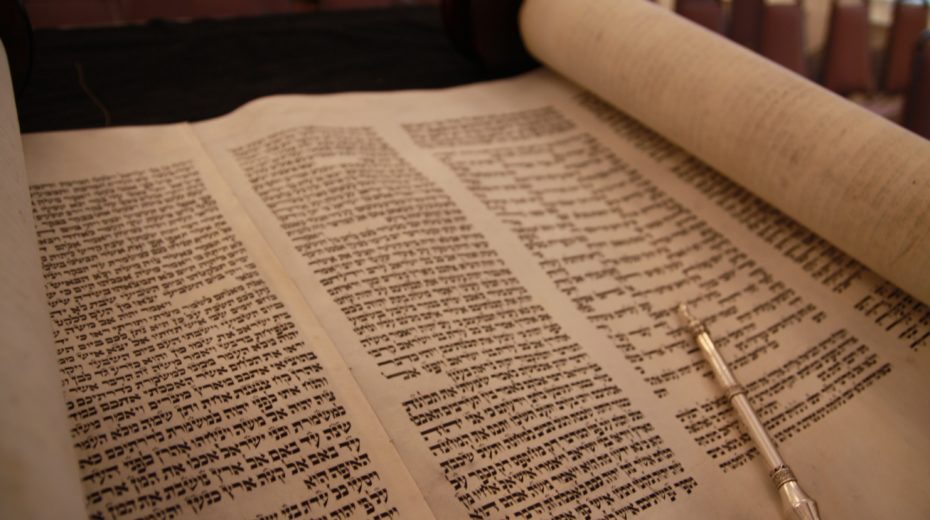On the road to Emmaus, Yeshua met with two of His disciples and, beginning at Moses and all the Prophets, He expounded to them in all the Scriptures the things concerning Himself. (Luke 24:27). For our Torah studies this year, therefore, week by week we will seek to discover how all of Torah prepared the way for the coming Messiah.
25th October 2025 (3 Cheshvan)
Noach (Noah): Genesis 6:9-11:32
Ancient man is often depicted as primitive and ignorant, not much different from animals that scavenge for food. This does not conform to the message of the Bible. Before the Flood, men and women lived long lives. They were closer to Creation than we are, stronger and healthier. Adam, the first man, was surely a wonderful result of God’s creativity, not a weak physical failure.
Nevertheless, we can only conjecture on what the pre-flood world was like. Over more than a thousand years, mankind had multiplied. Potentially, their world could have been quite sophisticated, in many ways perhaps comparable to ours. The one thing we do know, however, is that the Lord was sorry that He had made man on the earth, and He was grieved in His heart. (Genesis 6:6)
This is where we pick up the account from last week’s study. God declared, I destroy man whom I have created from the face of the earth, both man and beast, creeping thing and birds of the air, for I am sorry that I have made them. (Genesis 6:7)
Yet there was one man, Noah who, like Enoch before him, had learned to walk with God. The pre-flood world was washed away, except for this one man, his family and representatives of every kind of animal and bird, who would bring a new beginning to populate the earth once more.
What happened has not since been repeated and never will be repeated. A mighty flood arose, as water poured from the skies and welled up from the earth. The world that we now live in results from the surging floodwater, moving earth, sand and rock, throwing up new hills and mountains and beginning to resettle after about a year. We can only imagine the world before Noah and his family entered the Ark. The clues to the devastating Flood are in the solidified sediments and rock layers, with their fossils found in our world today. However we interpret these rocks, it is important to know that the depth of sin in the ancient world brought a tremendous judgement from God.
After the Flood, God made a Covenant with Noah that this would never happen again. This is the beginning of God opening His heart to mankind, that even if the wickedness of the pre-flood world arose again among mankind, it would not be dealt with in this way.
As the Torah studies progress week by week we will find other aspects of God’s covenant purposes, and they all point one way. They point to a different response from God to the sin of mankind. As sorry as God was that He had made mankind, it is surely true that, when He covenanted with Noah, He knew what pain lay ahead. He knew that sin and wickedness was not washed away by the water of the Flood. We only need to go a short distance into the future with Noah himself to find that his son Ham did something very wrong in the tent of his father (Genesis 9:22,24). Then in the genealogy of nations descended from Noah and his sons, described in our reading, arose much evil leading up to Babel.
So the world went on until today when wars continue to rage, jealousies and evil between members of Noah’s descendants multiply bringing lust and greed and all kinds of evil, so that we can ask whether the modern world is any different from the pre-flood world. Indeed, Yeshua Himself said, speaking about the days preceding His return,
And as it was in the days of Noah, so it will be also in the days of the Son of Man: They ate, they drank, they married wives, they were given in marriage, until the day that Noah entered the ark, and the flood came and destroyed them all. (Luke 17:26-27)
Just as there were surging waves at the Flood so the emotions of God must have surged for His people. His remedy was not another such devastation, but the sacrifice of His own Son Yeshua HaMashiach, as we read in the Gospel accounts. The height of Yeshua’s sacrificial death is an atonement for the sin of all who will believe and like Enoch and Noah desire to walk with their Creator God. This must be measured against the Flood devastation of the ancient world.
The days of Noah are comparable with every generation of mankind. Noah himself, like others such as Abraham after him are forerunners of Messiah. Noah’s name means rest. It was said of him Lamech lived one hundred and eighty-two years, and had a son. And he called his name Noah, saying, “This one will comfort us concerning our work and the toil of our hands, because of the ground which the Lord has cursed” (Genesis 5:28-29). Through one man, Noah, a new beginning came for the earth and all that was in it. This pointed prophetically to the future, when a new beginning for all who find faith in Yeshua would find a new beginning for their eternal life.
The Hymn writer, William Rees, drawing inspiration from Psalm 85, at the time of the famous 1904 Welsh revival had it right:
Here is love, vast as the ocean,
Loving-kindness as the flood;
When the Prince of Life, my ransom,
Shed for me his precious blood.
Who his love will not remember?
Who can cease to sing his praise?
He shall never be forgotten,
Through Heav’n’s everlasting days
On the mount of crucifixion,
Fountains opened deep and wide,
Through the flood-gates of God’s mercy,
Flowed the vast and gracious tide;
Grace and love, like mighty rivers
Poured incessant from above,
And God’s peace and perfect justice
Kissed a guilty world in love.














